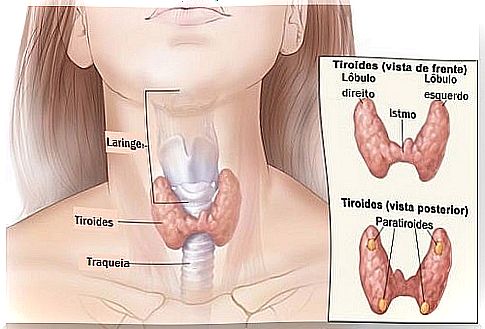How To Catch Thyroid Problems In Time

Early diagnosis of thyroid problems is vital. In the case of the thyroid and changes in this gland, the symptoms are very simple to identify, at least during the early stages.
However, these symptoms can be associated with other diseases or disorders of the body, so it is necessary to be aware of what happens to the body.
Not getting paranoid, but giving it the necessary importance. Learn more about the subject in this article.
What to know about thyroid problems?
Thyroid problems basically produce changes in the body, which are initially small, but which persist over time. Any thyroid dysfunction causes a change in the body, the organs suffer and this can result in consequences for general health.
Thyroid problems are more common in women and symptoms manifest as irregularities in the menstrual cycle or infertility. The hereditary factor is also decisive.
If someone in the family suffers from the problem, there is a good chance that you will too. It’s good to know that the thyroids regulate metabolism and are related to all body functions, both physical and intellectual.
The main function of this gland is to produce two hormones (whose names are T3 and T4), which are the “fuels” so that all cells can function properly.

There are two types of thyroid gland alterations: hypothyroidism and hyperthyroidism. The first is the most common and causes the organs to work more slowly, characterized by weight gain.
The second has more obvious symptoms and can produce rapid weight loss without dieting or exercising. A related problem is goiter, which occurs when the gland grows too large and the neck also enlarges.
What are the symptoms of thyroid problems?
Since this is a gland failure and implies an unbalanced production of hormones, there can be many different symptoms. Some of them are:
- frequent diarrhea
- Constipation
- Loss of hair
- Dry skin
- Cold intolerance in hands and feet
- Depression and low self-esteem
- thick skin
- Tiredness or chronic fatigue
- Weakness
- lack of concentration and memory
- weak hair
- Imbalances in the menstrual cycle
- copious menstrual flow
- High cholesterol
- Immune System Problems
- Sleep loss and insomnia
- Increase or decrease in weight
- Swollen neck (goiter)

- Lower ovulatory quality
- Apathy
- Social isolation
- Appearance of benign nodules
How to detect thyroid problems in time?
You should first look at the symptoms detailed above, and whether they are recurrent or if you have more than one. It is also important to know the family history (if parents, uncles or grandparents had thyroid problems).
Afterwards, make an appointment with the specialist doctor, who will evaluate the patient by palpating the neck (this is where many people detect that they have hyper or hypothyroidism).
In turn, a blood test will determine your TSH and thyroid hormone values.
After all this is done, the person will be able to receive a correct diagnosis and will know if it will be necessary to consume medication or do some medical practice (which could be surgery to eliminate the goiter).

In most cases, the patient must consume medication for life, so that the lifestyle is regained and, more importantly, to reduce and control symptoms.
It is also important to learn to live with the disease that, if treated in time, will not prevent the patient from continuing with the activities normally.
Experts say that a simple tablet daily is enough to regulate the work of the thyroid gland.
As it is an easy-to-detect and simple-to-treat pathology, the important thing is to know how to recognize it in time to avoid surgeries and other more invasive practices.
The ideal is to “arrive before” the disease spreads and compromises the patient’s quality of life.









